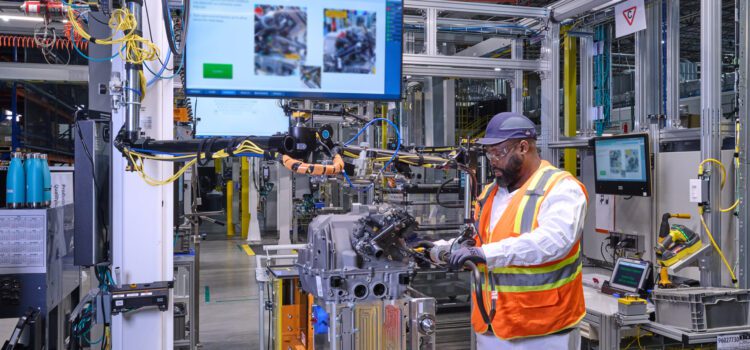GM and Honda turn the ignition on hydrogen fuel cell production at Michigan plant
Hydrogen fuel cell vehicles (FCEVs) may become a significant part of the zero-emissions vehicle ecosystem in the near future, but for now, the tech is obscure and only available to a pocket of consumers in California. Toyota and Hyundai are the only automakers offering vehicles using the propulsion system, but General Motors and Honda have been quietly working together to develop fuel cell systems for several years, and the pair are ready to begin commercial production.
The GM-Honda joint venture is the first to yield large-scale fuel cell manufacturing, and the pair said their project created 80 jobs at the 70,000-square-foot facility in Michigan. It’s unclear where or how the automakers plan to implement fuel cell technologies, but they noted that the cells can be used across both companies in several business ventures.
Interestingly, the two companies have worked together since 2013 on the project. The collaboration yielded improvements to Honda’s FCEV, the Clarity, in 2019, but the vehicle is no longer on sale. Honda and GM said the partnership helps lower costs with greater economies of scale, and the two have come up with a range of industry firsts along the way.
Even if the partnership doesn’t end up with a new fuel cell vehicle on the roads, the automakers could utilize hydrogen technologies to power manufacturing facilities or reduce emissions generated from logistics and shipping activities. That said, both automakers said they plan to build future FCEVs, so we’ll likely see a mix of products going forward.
While many automakers have gone all-in on EVs, this sort of partnership and the technologies behind it are likely the best path toward a zero- or lower-emissions motoring future. Toyota has taken flak for years over its stance that hybrids and FCEVs are viable alternatives to EVs, but the position is now looking quite smart, given that consumer demand for EVs is volatile, at best.

